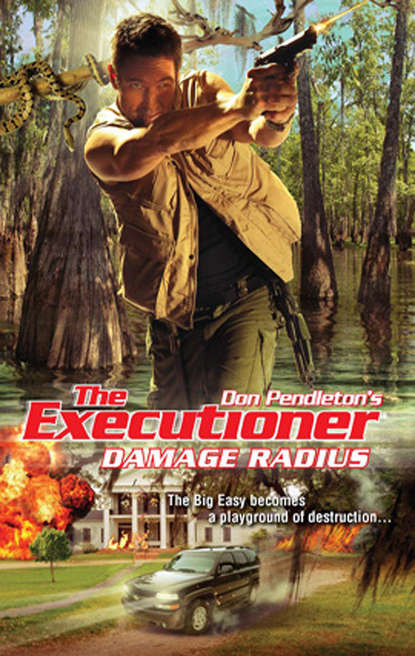По всем вопросам обращайтесь на: info@litportal.ru
(©) 2003-2024.
✖
Damage Radius
Автор
Год написания книги
2019
Настройки чтения
Размер шрифта
Высота строк
Поля
But there was one extremely important weapon that Bolan wanted with him again, and he reached into the side pocket of his jacket where he’d placed it while still at McFarley’s. The .22 Magnum Pug had passed through McFarley’s security earlier. But this time he wanted it as a backup piece for his .44 Magnum and 9 mm Parabellum rounds. Inserting it into a tiny leather inside-the-waistband holster, he clipped it over his belt, positioning it against his back and using the spare magazine holder that sported his extra Desert Eagle ammo to wedge it into place. When he was searched again—and he suspected he would be—McFarley’s man would take the Desert Eagle but likely leave the magazines in place.
At least the Executioner hoped he would. After all, the magazines would be no good without the pistol to go with them.
There was only one problem with the Pug as he saw it; he had not had time to test fire it. And Bolan never trusted any weapon he hadn’t personally fired.
The soldier sat down on the edge of the bed. An hour ago, had someone asked him if there was any sort of combat or criminal problem he’d never faced before, his answer would have been none that he could think of.
But finally he had thought of one. Or, rather, McFarley had thought one up for him.
Bolan lay back on the bed and rested on his elbow. His policy was to never kill cops—clean or dirty. He had in the past made an occasional exception.
And to make matters more complicated in this case, according to McFarley, Kunkle had repented of his past sins and was doing his best to make amends. He was no longer even dirty. He was a new man, different from the one who’d worked both sides of the law in the past.
So Bolan was going to have to fake the hit, convince McFarley that he’d killed Kunkle without actually doing so.
The Executioner had faked similar hits in the past, with the intended victims’ willing to help—and they were almost always willing because they knew if they didn’t help put their enemy in jail he’d just hire someone else to kill them. Bolan had taken photos of ketchup-covered bodies and used other props to make the death look real.
But this job was to be different. McFarley was familiar with the way cops posing undercover as hit men faked murders, and he wanted more solid proof.
McFarley wanted Greg Kunkle’s hands. With his police connections, McFarley could get the fingerprints run through AFIS—the nation-wide Advanced Fingerprint Identification System—and since all law-enforcement personnel were printed when hired, he could see if the prints on file matched the prints on the severed hands.
Which made the operation a hundred times more complicated.
An idea had been floating around in the back of Bolan’s mind for some time, and suddenly it crystallized. Pulling the cell phone from his shirt pocket, he tapped in Barbara Price’s number at Stony Man Farm.
As he’d known she would, Price answered.
“I need some help,” Bolan said without preamble. “Can you transfer me to the Bear?”
“You’re on your way now. I’ll scramble the call,” Price said.
A moment later, Kurtzman answered with, “Hello, Striker. Always nice to hear your voice and know you’re still alive.”
“You pays your money and you takes your chances.” Bolan quoted an old saying. “But since you brought up the subject of death, let me tell you what I need from you.” He began running down the elements of the McFarley-Kunkle situation to the computer expert.
“This sounds fairly simple,” Kurtzman said. “Hal can ask his contacts to get hands from a donated corpse at George-town’s medical school. Enough people owe the guy favors.” He paused. “I realize the body was donated to science, surely the hands can be sacrificed to a greater good.”
“As soon as you get the hands,” Bolan went on, “make a set of prints and substitute them for Kunkle’s on AFIS. But first, run them for real to make sure they don’t pop up on their own. If the hands’ former owner was ever printed—criminal record, armed forces, or for any other reason—they’ll pop up double when McFarley has whatever dirty cops he uses check them. And we don’t need that complicating this mess.”
“Already thought of that,” Kurtzman said. “If the new prints are already on file, I can delete them. Or get another pair of hands on the job . Sorry. Really bad pun, there, I realize.”
Вы ознакомились с фрагментом книги.
Приобретайте полный текст книги у нашего партнера:
Приобретайте полный текст книги у нашего партнера:











